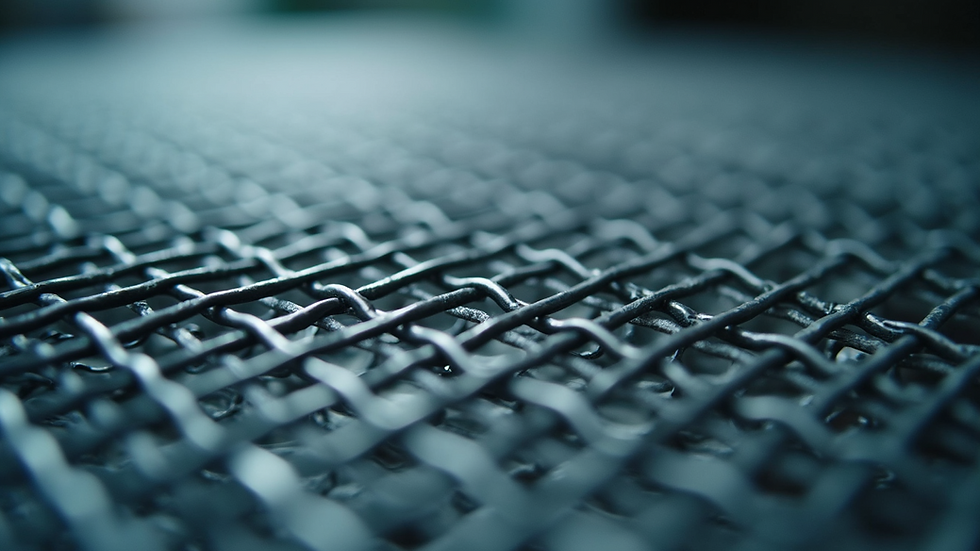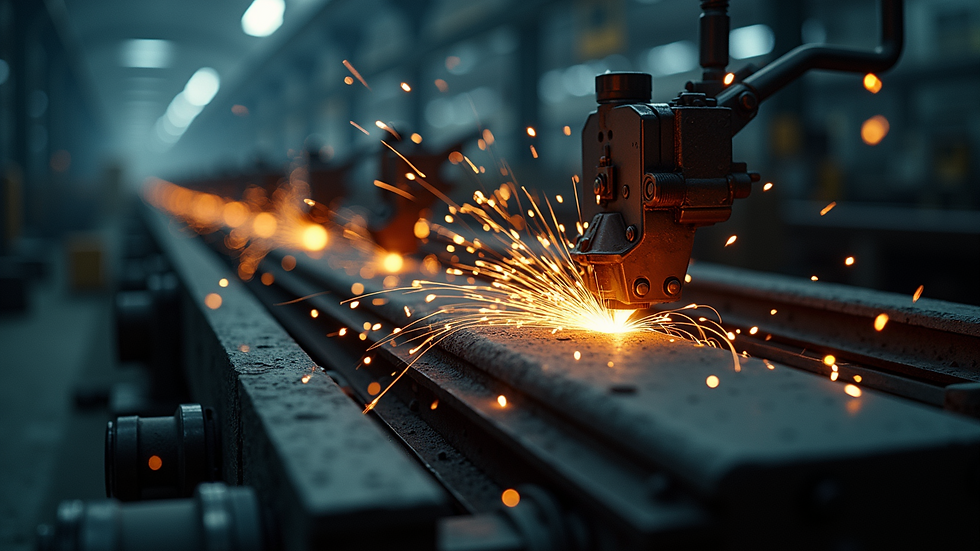Exploring the Versatility of Wire Products
- royalwire
- Aug 7, 2025
- 4 min read
Wire products play a crucial role in many industries. Their adaptability and strength make them essential components in manufacturing, construction, and even specialized markets like equine products. I want to share insights into how wire products serve diverse needs, highlighting practical uses and the benefits they bring to various sectors.
Understanding Wire Product Applications
Wire products come in many forms, including wire mesh, wire forms, and wire frames. Each type serves a specific purpose depending on the industry. For example, wire mesh is widely used in filtration and screening processes, while custom wire forms are essential in manufacturing parts that require precise shapes and durability.
In heavy industry, wire products often function as structural supports or protective barriers. They withstand harsh environments and heavy loads. Original equipment manufacturers (OEMs) rely on wire forms to create components that fit perfectly into machines, ensuring smooth operation and longevity.
In the equine market, wire products take on a different role. They are used in fencing, stall dividers, and other equipment that must be both strong and safe for animals. The versatility of wire allows for customization to meet specific needs, such as flexibility or rigidity, depending on the application.

Wire mesh used in industrial filtration systems
Key Wire Product Applications in Industry and Manufacturing
Wire products serve many functions across industries. Here are some of the most common applications:
Air Pollution Control: Wire frames are integral to air pollution devices. They support filter media and maintain airflow while capturing particulates. This application demands high-quality wire products that resist corrosion and maintain shape under stress.
Custom Wire Forms: These are tailored to fit specific equipment or machinery. They can be springs, clips, or complex shapes designed to meet exact specifications. Custom wire forms improve machine efficiency and reduce downtime.
Construction and Infrastructure: Wire mesh and reinforcement wire provide structural support in concrete and other building materials. They enhance durability and safety in construction projects.
Equine Products: Wire fencing and stall components ensure safety and containment for horses. These products must be strong yet flexible enough to prevent injury.
Each application requires wire products with specific properties such as tensile strength, corrosion resistance, and flexibility. Choosing the right wire product depends on the environment and the demands of the task.
Custom wire forms ready for manufacturing use
Materials and Manufacturing Techniques
Wire products are made from various materials, including stainless steel, galvanized steel, and specialty alloys. The choice of material affects the product’s performance and lifespan.
Stainless Steel: Offers excellent corrosion resistance and strength. Ideal for outdoor and harsh environments.
Galvanized Steel: Coated with zinc to prevent rust. Common in construction and fencing.
Specialty Alloys: Used for high-temperature or chemically aggressive environments.
Manufacturing techniques include:
Drawing: Reducing wire diameter to achieve desired thickness.
Forming: Shaping wire into specific forms using machines or manual processes.
Welding and Weaving: Creating wire mesh or frames by joining wires together.
Advanced manufacturing ensures precision and consistency. This is critical for applications like air pollution control devices, where exact dimensions affect performance.

Wire manufacturing machinery producing wire mesh
Practical Recommendations for Selecting Wire Products
When selecting wire products, consider these factors:
Application Requirements: Understand the environment and mechanical stresses the wire will face.
Material Properties: Choose materials that resist corrosion, wear, and temperature extremes.
Customization Needs: For unique applications, custom wire forms may be necessary.
Compliance and Standards: Ensure products meet industry standards for safety and performance.
Working with a reputable supplier is essential. For example, royal wire products offers a wide range of wire solutions tailored to industrial and equine markets. Their expertise ensures you get products that meet your exact needs.
Future Trends in Wire Product Applications
The wire product industry continues to evolve. Innovations focus on improving material performance and expanding applications. Some trends include:
Advanced Coatings: New coatings enhance corrosion resistance and reduce maintenance.
Automation in Manufacturing: Robotics and AI improve precision and reduce production costs.
Sustainability: Eco-friendly materials and recycling processes gain importance.
Expanded Equine Market: Custom wire products designed specifically for equine safety and comfort are growing in demand.
Staying informed about these trends helps businesses maintain a competitive edge and meet evolving customer expectations.
Maximizing the Benefits of Wire Products
To get the most from wire products, follow these best practices:
Regular Inspection: Check for wear, corrosion, or damage, especially in critical applications.
Proper Installation: Ensure wire products are installed according to manufacturer guidelines.
Maintenance: Clean and treat wire products to extend their lifespan.
Partner with Experts: Collaborate with suppliers who understand your industry and can provide tailored solutions.
By applying these strategies, you ensure reliability and performance in your wire product applications.
Wire products are indispensable across many sectors. Their versatility, strength, and adaptability make them valuable assets in heavy industry, manufacturing, and specialized markets like equine products. Understanding their applications and selecting the right materials and forms leads to better outcomes and long-term success.


Comments